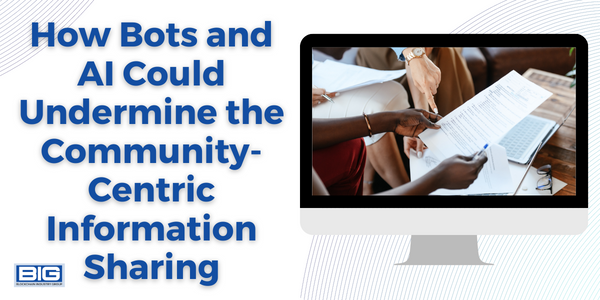
As technology continues to advance, the way we create and share information is evolving rapidly. While traditional forms of content creation, such as blogs and websites, may become obsolete, the rise of community-centric information sharing presents new opportunities for human connection and collaboration. However, there is a dark side to this trend: the potential for bots and AI to infiltrate and undermine these communities.
Bots and AI are already a ubiquitous presence on social media platforms, where they are used to automate tasks such as liking posts, following users, and sharing content. While some of these bots are harmless, others are designed to spread misinformation, sow discord, and manipulate public opinion. As online communities become increasingly important sources of information and social interaction, the potential for bots and AI to infiltrate and exploit these spaces is a growing concern.
One of the biggest challenges posed by bots and AI is the potential for them to undermine the trust and authenticity of online communities. As these communities become more important sources of information, users will need to be able to trust that the information they are receiving is accurate and reliable. However, bots and AI can create the illusion of popularity and credibility by generating fake likes, shares, and followers. This can make it difficult for users to distinguish between authentic and fake information, and can erode trust in online communities.
Another challenge posed by bots and AI is the potential for them to create echo chambers and reinforce existing biases. Online communities are often built around shared interests and experiences, which can create a sense of belonging and connection. However, this sense of community can also lead to the formation of echo chambers, where users are only exposed to information and viewpoints that reinforce their existing beliefs. Bots and AI can exacerbate this problem by selectively sharing information that supports certain viewpoints and suppressing information that contradicts them.
Battle of Titans: IBMs Deep Blue vs. Garry Kasparov
—
Building Smart Cities with Smart Contracts: Blockchain, AI, and the Future of Urban Development
—
Competitive Edge with Revolutionary AI
Finally, bots and AI can also be used to manipulate public opinion and suppress dissenting voices. In some cases, bots and AI can be used to spread misinformation and propaganda, creating a distorted view of reality. In other cases, bots and AI can be used to silence or discredit individuals who express dissenting opinions or challenge the status quo. This can create a chilling effect on free speech and limit the diversity of opinions and ideas within online communities.
In conclusion, the rise of community-centric information sharing presents both opportunities and challenges for the future of content creation. While these communities can foster meaningful human connections and promote a more collaborative approach to information sharing, they are also vulnerable to the negative impacts of bots and AI. As online communities become increasingly important sources of information and social interaction, it is essential that we remain vigilant against the potential for manipulation and exploitation. By working together to build more resilient and inclusive online communities, we can create a future of content creation that reflects the values and aspirations of its users.



